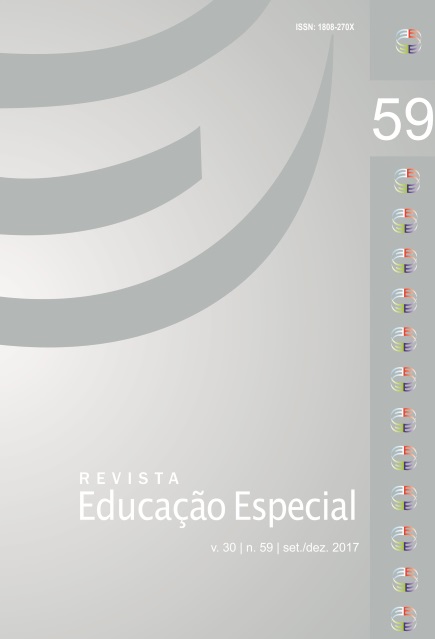Teachers’ self-efficacy beliefs: a critical motivational factor in inclusive education
DOI:
https://doi.org/10.5902/1984686X28427Keywords:
Teachers in inclusive education, Self-efficacy beliefs, Collective efficacyAbstract
Teachers are supposed to master teaching skills, but they have also to hold well established self-efficacy beliefs. That is, they must belief that they can accomplish successfully specific tasks even in classes with students’ large diversity. Researchers have documented Bandura’s proposal that teachers with strong self-efficacy beliefs think that all their students can learn and therefore they are more compromised and motivated for create conditions necessary for the development of every student in their classes. They are more persistent and more resilient after failures. Research findings have also supported Bandura’s claim that in school teachers must achieve a strong collective efficacy that influences every individual to be persistence after setbacks and to have higher expectancies for their pupils. In this paper conditions are showed to further individual and collective efficacy beliefs in Inclusive Education, so that benefits for all students be assured.
Downloads
Downloads
Published
How to Cite
Issue
Section
License
Declaration of originality
We declare that all articles present in the journal Revista Educação Especial (UFSM) are originals and were not submitted for publishing on any other publication, as a whole or a fraction. We also declare that, after being published by Revista Educação Especial (UFSM), a paper will not be submitted to another journal within two years. After this time, our journal transfers the publishing rights to the authors, with a permit granted by the Editorial Council.
We also acknowledge that the originals’ submission to Revista Educação Especial (UFSM) implies on a transference of copyright for physical and digital publishing to the journal. In case of noncompliance, the violator will receive sanctions and penalties predicted by the Brazilian Copyright Protection Law (n. 9610, dated 19/02/98).







